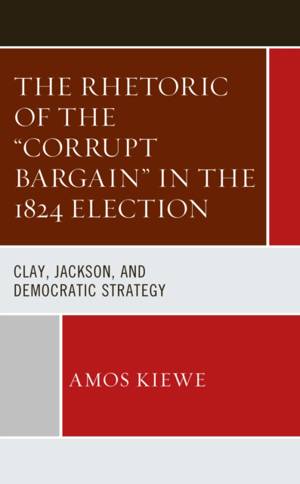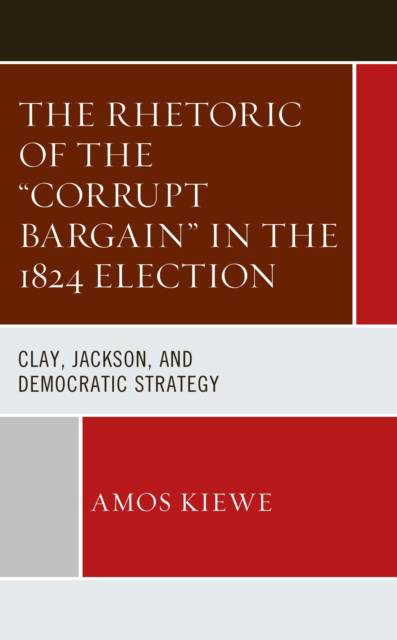
- Afhalen na 1 uur in een winkel met voorraad
- Gratis thuislevering in België vanaf € 30
- Ruim aanbod met 7 miljoen producten
- Afhalen na 1 uur in een winkel met voorraad
- Gratis thuislevering in België vanaf € 30
- Ruim aanbod met 7 miljoen producten
Zoeken
The Rhetoric of the Corrupt Bargain in the 1824 Election
Clay, Jackson, and Democratic Strategy
Amos Kiewe
Hardcover | Engels
€ 152,95
+ 305 punten
Omschrijving
In The Rhetoric of the "Corrupt Bargain" in the 1824 Election: Clay, Jackson, and Democratic Strategy, Amos Kiewe explores the story of the 1824 presidential election, when the House of Representatives elected the president after no candidate won outright the majority of the Electoral College. Though most in the nation assumed that Andrew Jackson, who won the popular vote and the plurality of the Electoral College, would be elected the presidency by the House, Kiewe demonstrates how maneuvering, vote trading, and special favors dictated a different outcome. Through inspecting speeches, statements, private letters, and published accounts, Kiewe simultaneously intersects rhetoric, history, and politics to tell the story of the 1824 presidential election. Scholars of communication, political science, and history will find this book of particular interest.
Specificaties
Betrokkenen
- Auteur(s):
- Uitgeverij:
Inhoud
- Aantal bladzijden:
- 220
- Taal:
- Engels
Eigenschappen
- Productcode (EAN):
- 9781666925319
- Verschijningsdatum:
- 21/09/2022
- Uitvoering:
- Hardcover
- Formaat:
- Genaaid
- Afmetingen:
- 152 mm x 229 mm
- Gewicht:
- 494 g

Alleen bij Standaard Boekhandel
+ 305 punten op je klantenkaart van Standaard Boekhandel
Beoordelingen
We publiceren alleen reviews die voldoen aan de voorwaarden voor reviews. Bekijk onze voorwaarden voor reviews.











